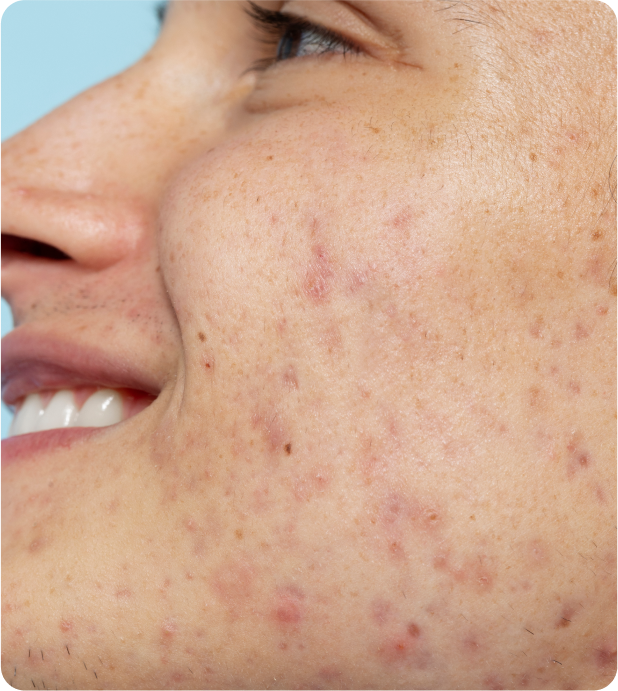Scars and Spots

Once acne has cleared, most individuals will be left with the lingering effects of scars and dark spots, which can be just as frustrating as acne itself. Here are some helpful tips on how to treat acne scars!

Once acne has cleared, most individuals will be left with the lingering effects of scars and dark spots, which can be just as frustrating as acne itself. Here are some helpful tips on how to treat acne scars!

Before diving into treatment options, it’s important to understand the difference between Post-Inflammatory Erythema (PIE) and Post-Inflammatory Hyperpigmentation (PIH).
Post-Inflammatory Erythema (PIE): PIE is the red or pink marks left on the skin after acne lesions heal. PIE is caused by increased blood flow to the area due to inflammation and is often temporary. It usually fades over time but can take weeks to months to resolve.
Post-Inflammatory Hyperpigmentation (PIH): PIH appears as dark spots or patches on the skin following a breakout. PIH occurs when the skin produces excess melanin in response to inflammation, resulting in darker areas. Unlike PIE, which is often red, PIH is characterized by its brown or dark color and can take longer to fade.
It’s essential to wait until your acne is fully cleared before starting treatments for scars and dark spots. This ensures that new breakouts won’t interfere with the healing process.
Chemical Peels: TCA (trichloroacetic acid) peels are a powerful option for treating scars and dark spots. They work by exfoliating the outer layers of skin, promoting cell turnover, and stimulating collagen production. TCA peels can improve skin texture, reduce the appearance of scars, and help fade dark spots. It’s essential to have these treatments done by a qualified professional to ensure safety and effectiveness. These peels are also safe for all skin tones.
Retinoids: Retinoids, derived from vitamin A, are renowned for their ability to improve skin texture and tone. They promote cell turnover, help fade dark spots, and encourage collagen production, making them effective for treating both scars and hyperpigmentation. Over-the-counter options like retinol are available, but stronger prescription retinoids may be recommended for more severe scarring.
Laser Therapy: Various laser treatments can target dark spots and scars, helping to rejuvenate the skin and promote a more even complexion.
Ice pick and box scars resemble small, deep holes or punctures, often caused by severe acne or other skin trauma.
Microneedling: This treatment involves using tiny needles to create micro-injuries in the skin, stimulating collagen production and improving skin texture.
TCA CROSS: (Chemical Reconstruction of Skin Scars) is a procedure that uses trichloroacetic acid (TCA) to treat atrophic acne scars.

To minimize the risk of further scarring and dark spots:
Avoid Picking: Refrain from squeezing or picking at acne, as this can lead to more significant scarring.
Sun Protection: Always wear sunscreen, as UV exposure can darken existing spots and hinder healing.
Consistent Skincare Routine: Maintain a gentle skincare routine.


We want to learn a little bit more about your acne so we're sure we can help you.The quiz is free and only takes 1 minute to complete.
If your acne is persistent or problematic, you will receive an invitation to join.
Begin the quiz to see if you can join!
(Quiz length: 10 questions)